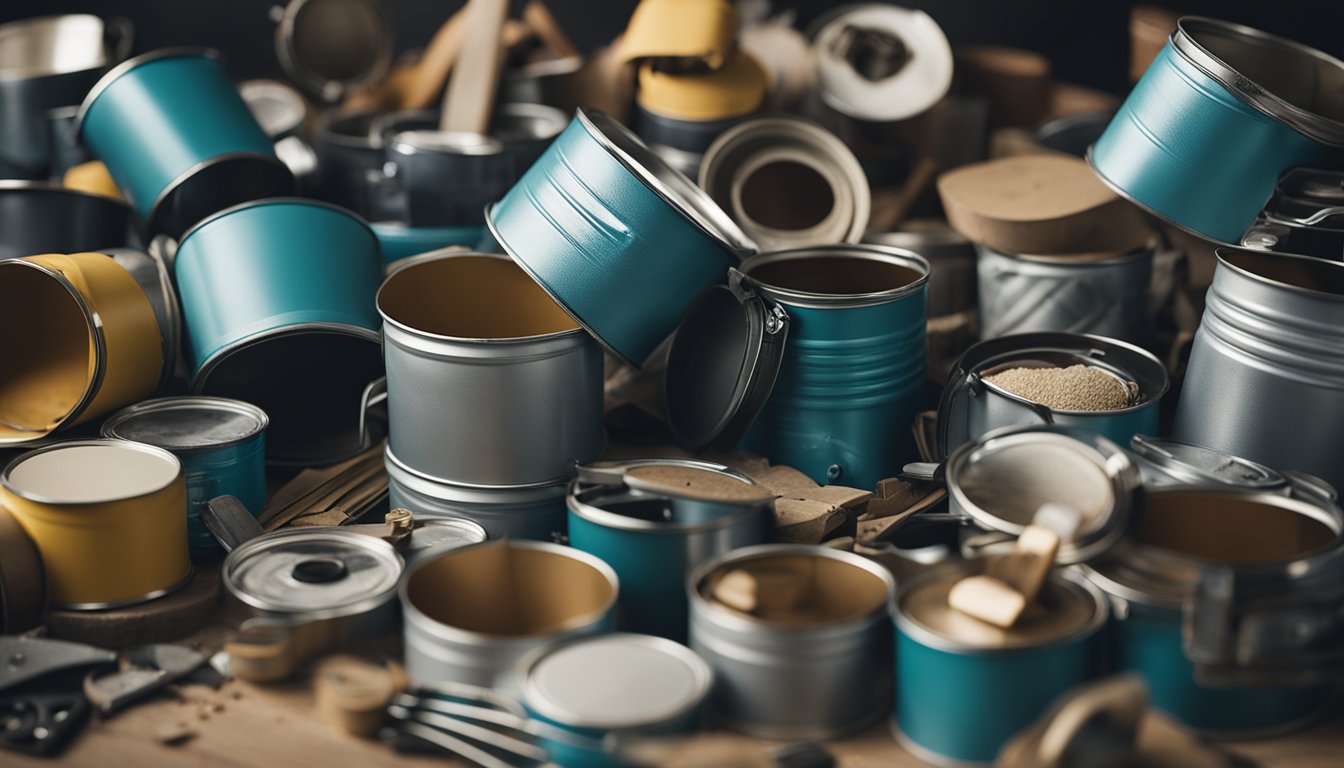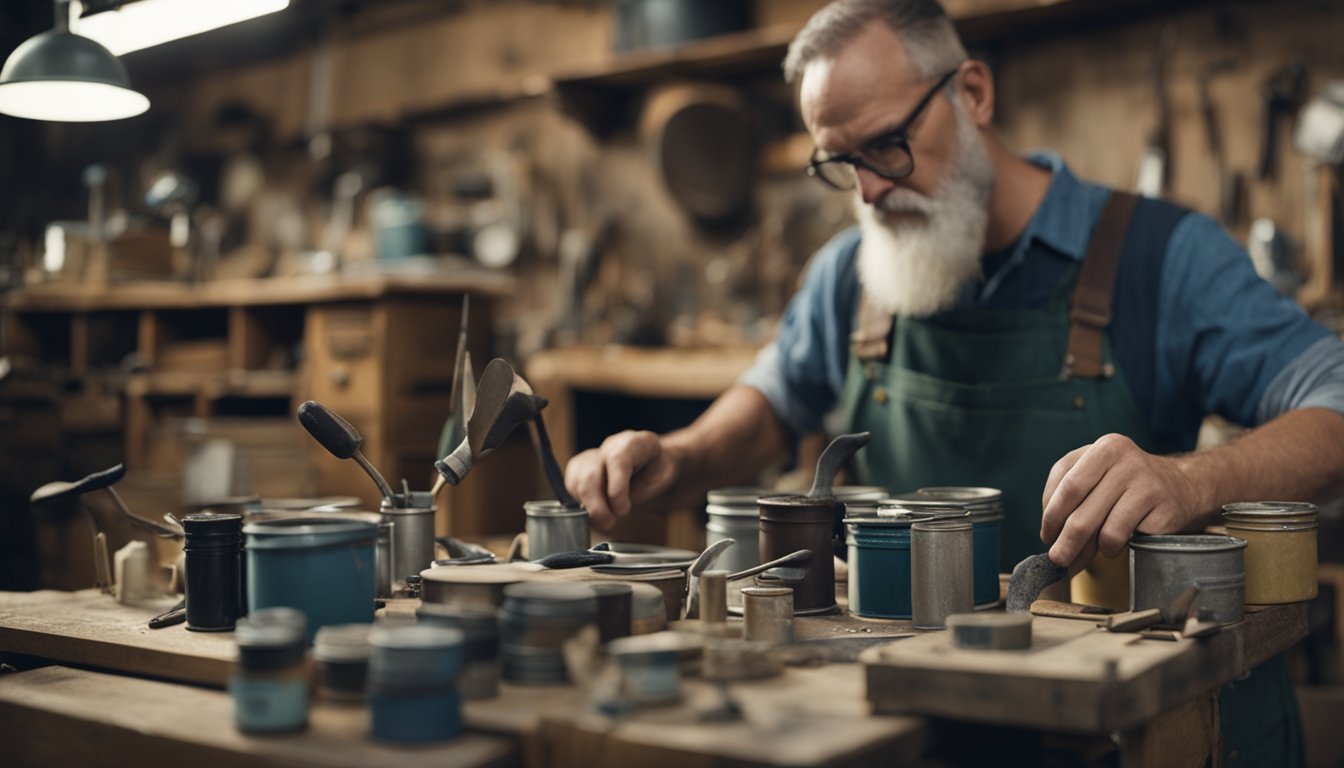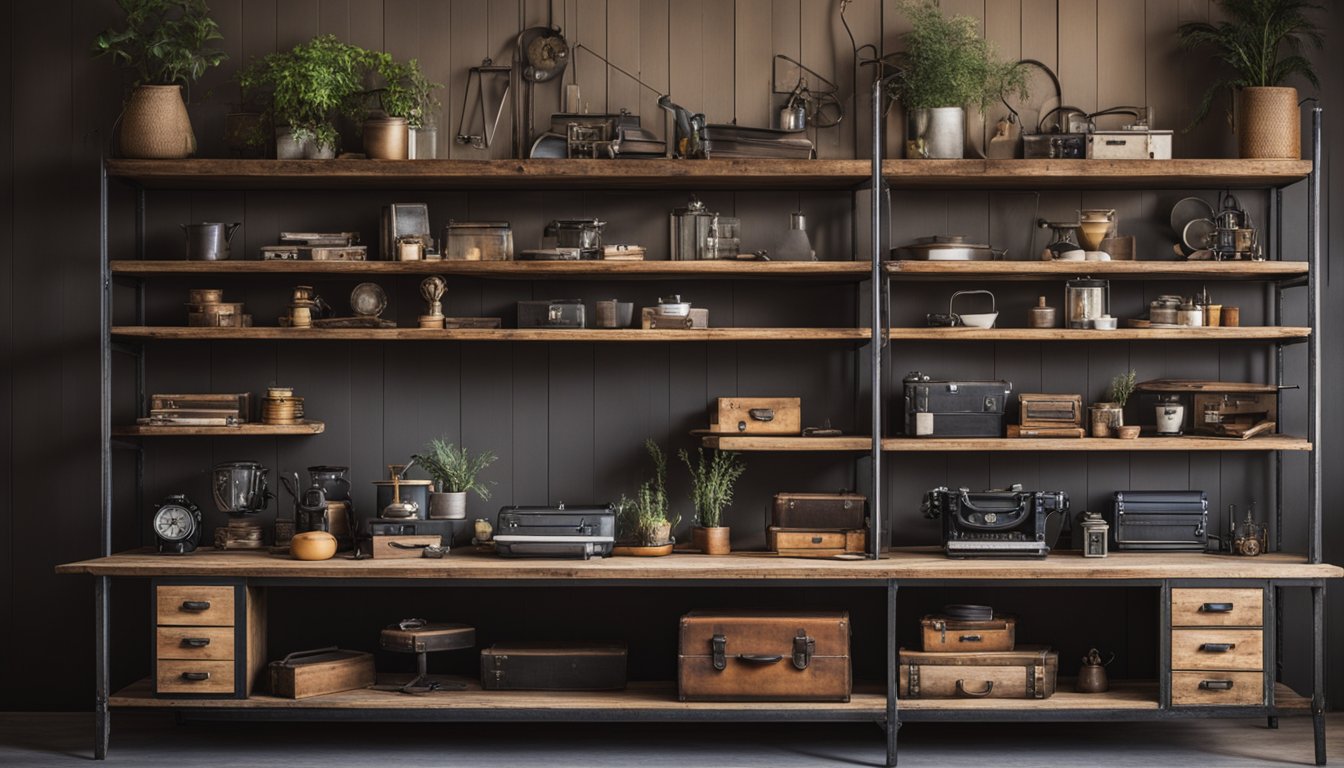Late updated: 30 Jul 2024 15:07
Written by: Sarah Hollister
DIY Upcycled Furniture Ideas For Your Home: Transform Your Space Creatively
In a world where sustainability is becoming increasingly vital, upcycling offers a creative and eco-friendly way to revamp your living space. We've gathered some of the most ingenious DIY upcycled furniture ideas to inspire you and help you transform unwanted items into stunning pieces that add character to your home. By repurposing materials, we reduce waste and contribute to a more sustainable environment, all while showcasing our creativity.

Whether you're looking to refresh your indoor decor or add a touch of uniqueness to your outdoor spaces, upcycling presents endless possibilities. From turning an old bookshelf into a charming kitchen island to transforming a discarded ladder into an eye-catching shelf, there are numerous ways you can breathe new life into your existing furniture. These projects not only save money but also allow us to put a personal stamp on our living environment.
Starting your upcycling journey may seem daunting, but worry not, we've curated an array of ideas and tutorials to get you started. With a bit of imagination and some handy tools, you'll soon be creating bespoke pieces that make your home truly one-of-a-kind. Get ready to explore the magic of repurposing and embrace the art of upcycling!
Key Takeaways
- Upcycling reduces waste and promotes sustainability.
- Numerous creative ideas can refresh both indoor and outdoor spaces.
- Tutorials and projects make it easy for anyone to start upcycling.
Getting Started with Upcycling

Upcycling old furniture can be a fulfilling DIY project that offers unique and personalised results. By selecting the right pieces, gathering appropriate materials, and ensuring proper preparation, we can transform any item into a stunning addition to our homes.
Choosing the Right Furniture to Upcycle
When choosing furniture to upcycle, start by looking for pieces that are in decent structural condition. Cabinets, benches, nightstands, and chairs are excellent choices. We often find these items at thrift stores, garage sales, and estate sales. It's essential to see the potential in these pieces beyond their current state.
Look for solid wood furniture as it's more durable and easier to work with. Avoid items that have extensive damage or water stains, which might be beyond a simple repair job. Think creatively: An old cabinet can become a kitchen island, or a nightstand can be transformed with a coat of chalk paint and some new hardware.
Tools and Materials
Gathering the necessary tools and materials is vital to ensure a smooth upcycling process. For most upcycling projects, we need basic tools such as screwdrivers, a hammer, a drill, and a sanding block or electric sander. In addition, wood filler is essential for filling in any small dents or scratches.
Materials like paint (both chalk and regular), primer, wallpaper, and wood stain are key for giving furniture a fresh look. For upholstery projects, fabric, a staple gun, and foam can be required. Don't forget the importance of having scrap wood handy for any additional structural modifications.
Preparation and Safety Tips
Before starting any upcycling project, prepare your workspace and ensure you follow safety guidelines. Clear a well-ventilated area where you can comfortably work. Lay down protective sheets or newspapers to avoid staining floors and other surfaces.
Safety measures include wearing a mask while sanding and using paint, as well as gloves when handling chemicals like paint thinner. Properly clean the furniture before starting, removing old paint or varnish with sanding or a chemical stripper. Applying a primer layer can help the paint adhere better, and wood filler is helpful for smoothing out any imperfections.
These steps are crucial for a successful and safe DIY upcycling project. Following them ensures that we produce high-quality, personalised pieces that enhance our homes.
Creative Upcycling Ideas and Tutorials
Transforming old furniture into functional and beautiful pieces can be both eco-friendly and budget-friendly. We explore creative upcycling ideas that range from enhancing your living space to creating unique outdoor décor.
Furniture for Your Living Space
Repurposed furniture can breathe new life into any room.
A worn-out cabinet can become a stylish kitchen island with some paint and new hardware. Consider turning an old ladder into a bookshelf by adding planks across the rungs. With a coat of chalk paint, a dated hutch can be refreshed and provide ample storage in any room.
Not only does this kind of DIY project reduce waste, it also allows you to customise your home to your unique style.
Functional Upcycles for Home Organisation
Functional furniture upcycles can greatly improve home organisation.
A vintage dresser repurposed as a bathroom vanity provides both style and storage. Old shutters can be transformed into an organiser for keys and mail with a few hooks and shelves. Repurposing an unused window frame into a photo display or jewellery holder adds a personal touch to your decor.
These upcycling ideas ensure that every piece of furniture in your home serves a practical purpose.
Upcycled Furniture for Outdoor Enjoyment
Give your garden and patio a unique charm with upcycled furniture.
An outdated garden bench can be revitalised with fresh paint and cushions. Turn an old coffee table into a planter by removing the top and adding soil. Repurpose vintage suitcases into quirky planters or seating with a touch of creativity.
Creating upcycled outdoor furniture not only enhances your outdoor enjoyment but also contributes to a more sustainable lifestyle.
Unique Accents and Decor
Adding unique accents can elevate the look of any space.
A bland wall clock can be transformed with a decorative frame or paint. Old lamps can be given a new lease of life with updated shades or repurposed bases. Assemble mismatched tables into a cohesive coffee table by painting them in a unified colour.
By using items from flea markets or donations, we can create one-of-a-kind pieces that reflect our personal style while staying eco-friendly.
Frequently Asked Questions

In this section, we address common queries about upcycling furniture, providing detailed advice on techniques, materials, and creative ideas for transforming your old pieces into something new and stylish.
How can I repurpose old furniture to give it a new life?
Repurposing old furniture starts with identifying a new functional use for it. For example, an old door can become a desk, and a dresser drawer can be a shelf. By using basic tools and materials, you can easily transform these items with a little effort and creativity.
What are the best techniques for upcycling bedroom furniture?
For bedroom furniture, a good technique is to start with sanding the piece to remove old finishes. This creates a smooth surface for painting or varnishing. Adding new hardware like knobs and handles can modernise the look. Consider stencilling patterns to add a personal touch.
Which paints are recommended for upcycling wooden furniture?
We recommend using chalk paint for a matte, vintage finish. It's easy to distress for a shabby chic look. For a glossy finish, go for latex or acrylic paints. Don't forget to apply a primer beforehand and a sealant after painting to protect the surface and enhance durability.
Can you suggest some creative ideas for upcycling furniture at home?
Old cabinets can be transformed into unique kitchen islands. An unused bookshelf can turn into a chic bar cart. Spindles from broken chairs make great wind chimes or decorative ornaments. Using pallets to build benches or tables is another budget-friendly and eco-friendly option.
What is the process for upcycling furniture for complete beginners?
Beginners should start by choosing a simple project like repainting a small table. Clean the piece thoroughly, make any necessary repairs, and sand it down. Apply primer, then your chosen paint. Finish with a protective topcoat. Take your time with each step to ensure a quality result.
How can I achieve a professional look while DIY upcycling furniture?
Achieving a professional look involves meticulous preparation. Sand all surfaces to an even texture and use high-quality paints and sealants. Follow painting techniques such as using a brush for small areas and a roller for larger surfaces. Finally, apply multiple thin coats rather than one thick coat to avoid drips and achieve a smoother finish.
